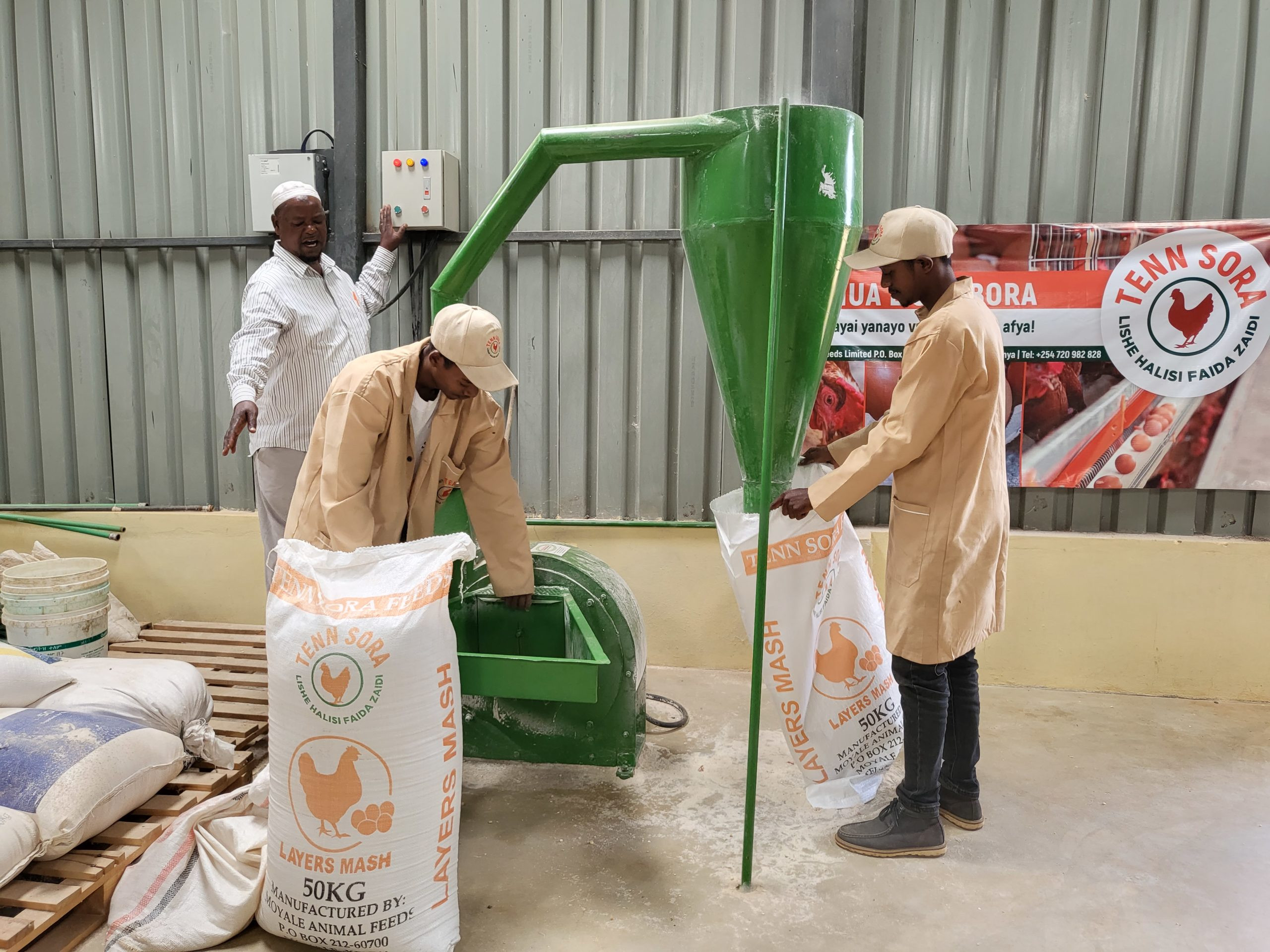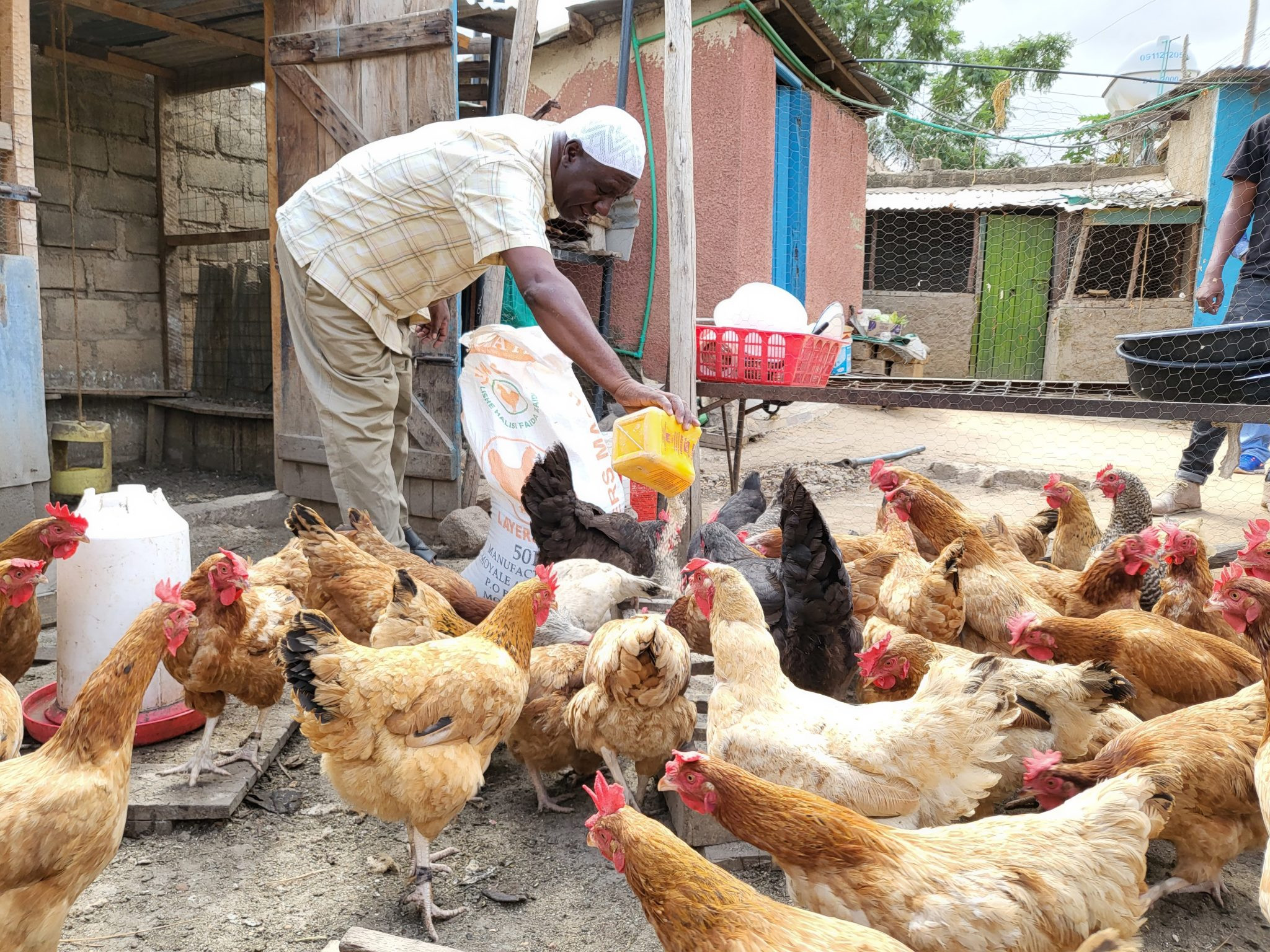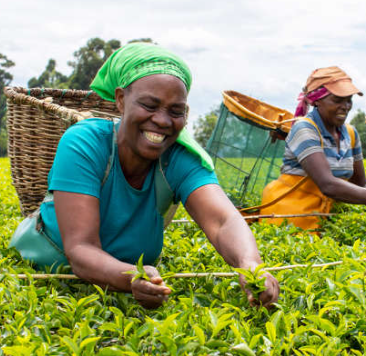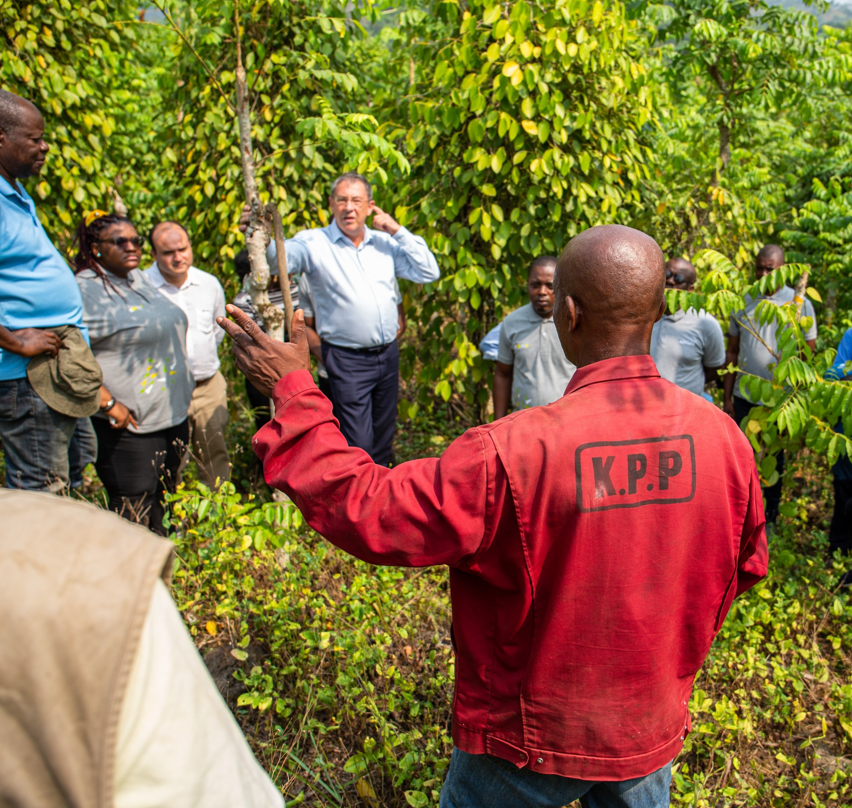Sora Abayo, a farmer from Moyale Town in Kenya’s Marsabit County, began keeping chickens in 2007 as a source of income. He would import animal feeds from the capital city of Nairobi — almost 800 kilometers away. Because of this distance, Abayo experienced constant challenges in ensuring a steady supply of chicken feed.

Photo: ACDI/VOCA
“Due to the poor roads, the trucks carrying feed did not reach Moyale town where the business was located, and I had to organize transport to the farm at an additional cost,” Abayo said. “Sometimes when it rained or there were clashes along the road, I would wait for up to two weeks for feeds.”
The delays often resulted in reduced egg production, underweight broilers (i.e., chickens raised for meat), and business losses. To address the challenge, Abayo visited the livestock office in Moyale Town. County government officials put him in contact with a private chicken feed producer. Through this linkage, Abayo would rent a grinder and mixer for USD 25 a day and hire a technician for USD 10 a day, producing feeds that would last two to three weeks. Unfortunately, because he could only rent the equipment when his neighbor was not using it, he couldn’t produce enough feed for his chicken.
In 2018, he visited the county livestock office again. This time, the officer taught him how to make improved, chicken feed and informed him of an opportunity with the Feed the Future Kenya Livestock Market Systems Activity, funded by USAID, to assist small and medium enterprises to scale up their businesses. In 2020, Abayo successfully applied for a grant of USD 15,000 for his business, known as Moyale Feeds. With the grant from USAID, Abayo built a chicken feed factory and purchased a feed machine (grinder, mixer, roaster, and pelletizer) with the capacity to produce 10 tons of feeds per day. In addition, he installed a backup generator and fenced the compound.
He began producing chicken feeds, selling a 50-kilogram bag of layers mash — his fastest moving product — at a competitive cost of USD 33 compared to the retail price of USD 35 among other feed companies. Over time, he built a steady clientele as far as 250 kilometers away in Marsabit and Wajir counties. With increased business, Abayo employed four people to help run the factory.
Soon, Russia’s war in Ukraine increased the cost of fuel. Having a local chicken feed supplier reduced transport costs and the cost of doing business.

Photo: ACDI/VOCA
“Before [Abayo] began manufacturing this feed, we would buy chicken feed from Nairobi,” said Ali Hirbo, a subsistence chicken farmer and one of Abayo’s customers. “We waited anxiously when we heard he was receiving assistance from USAID to begin processing. Now, he makes home deliveries, saving us additional transport costs, and the quality of my eggs has improved.”
Moyale Feeds serves more than 200 small-scale poultry producers, including Darara Cooperative Poultry Farm, which has 1,200 layers (i.e., chickens raised for eggs). Additionally, the Activity introduced Abayo to other successful chicken feed producers who offer him mentorship and sound business advice. As a result, he successfully applied for certification that will allow him to produce other livestock feed ad increase his clientele.
“[The Activity] has helped me grow this business in ways I did not expect. I am grateful for the support and look forward to what the future holds.”
– SORA ABAYO
This article was originally published by ACDI/VOCA.

